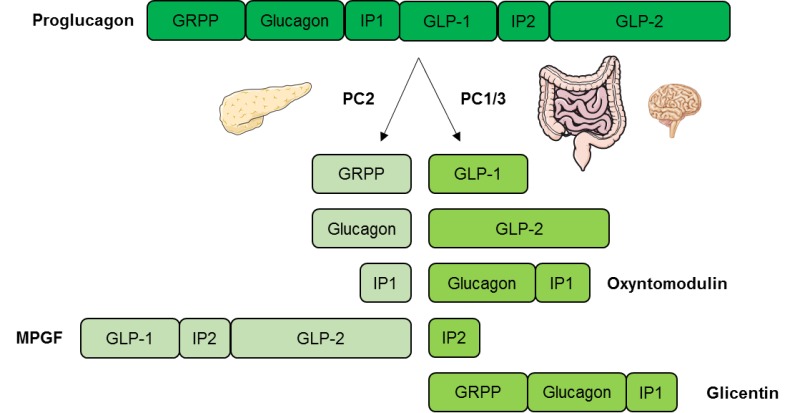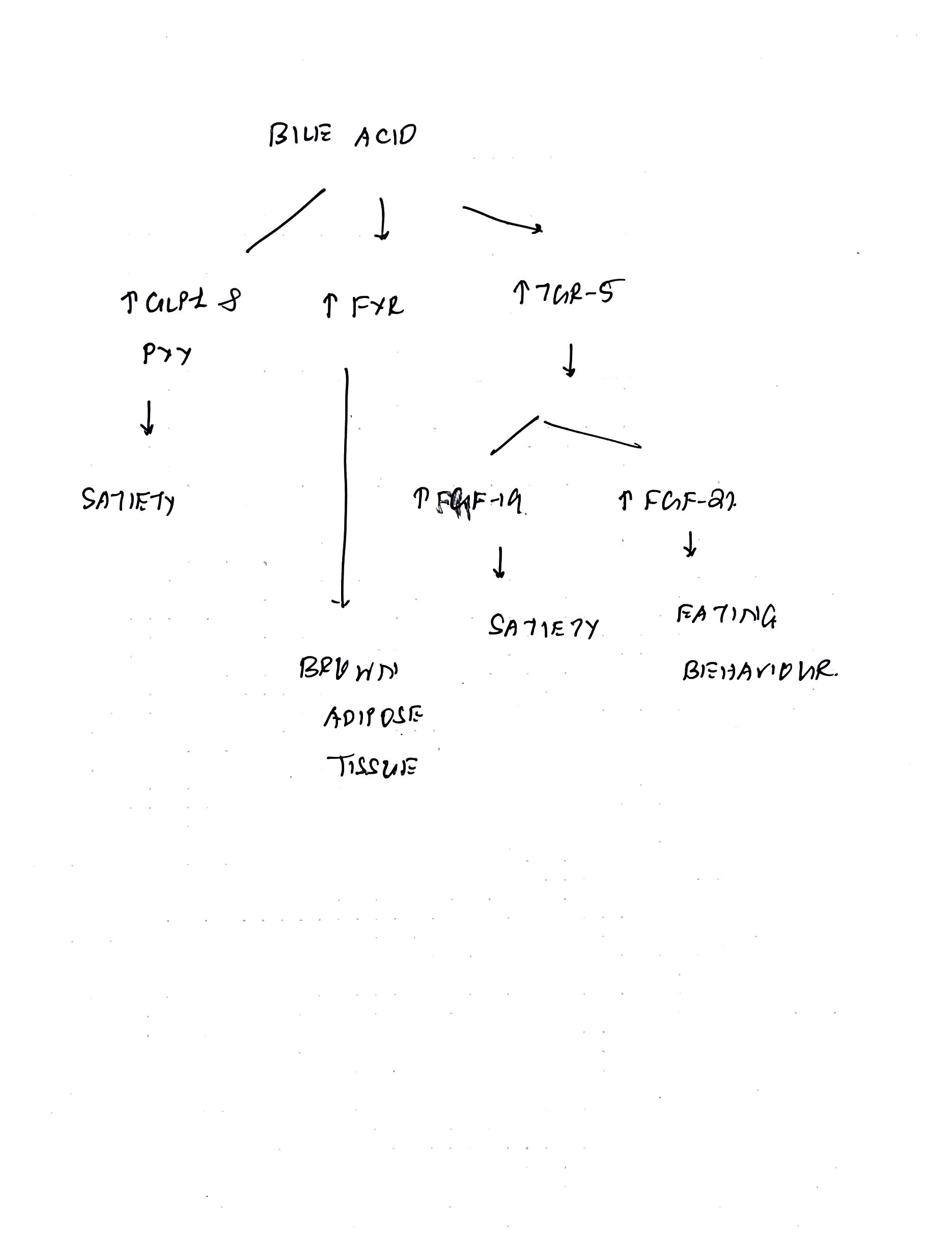- Credits
- Section Writer: Dr. Om J Lakhani
- Section Editor: Dr. Om J Lakhani
Support us:
- Support us by purchasing our book - Click here for more details: Volume 1- THE BEST OF NOTES IN ENDOCRINOLOGY BOOK SERIES
- Support you by Becoming a YouTube member (Click here)
-
Q. What is the essential argument of bariatric surgery in terms of weight loss strategy ?
- The body has a metabolic set point and tries to maintain the same
- Those on caloric restrictive diets- loose weight initially and acutely the set-point is lowered.
- But as soon as their fast period stop → the set points goes to normal (even supranormal) and the patient starts to regain weight gain often overtaking the original weight
- the problem with pharmacotherapy is that is only works on one physiological aspect which the body often overcomes
- bariatric surgery surgery works because it changes local anatomy as well as physiology on several aspects leading to a multiprong apporach
-
Q. Which are the areas bypassed in RYGB surgery ?
- part of stomach
- Whole of duodenum
- Proximal Jejunum
-
Q. Which neurotransmitters in brain promote food intake and which promote satiety ?
- AgRP - Promotes food intake
- POMC- Promotes satiety
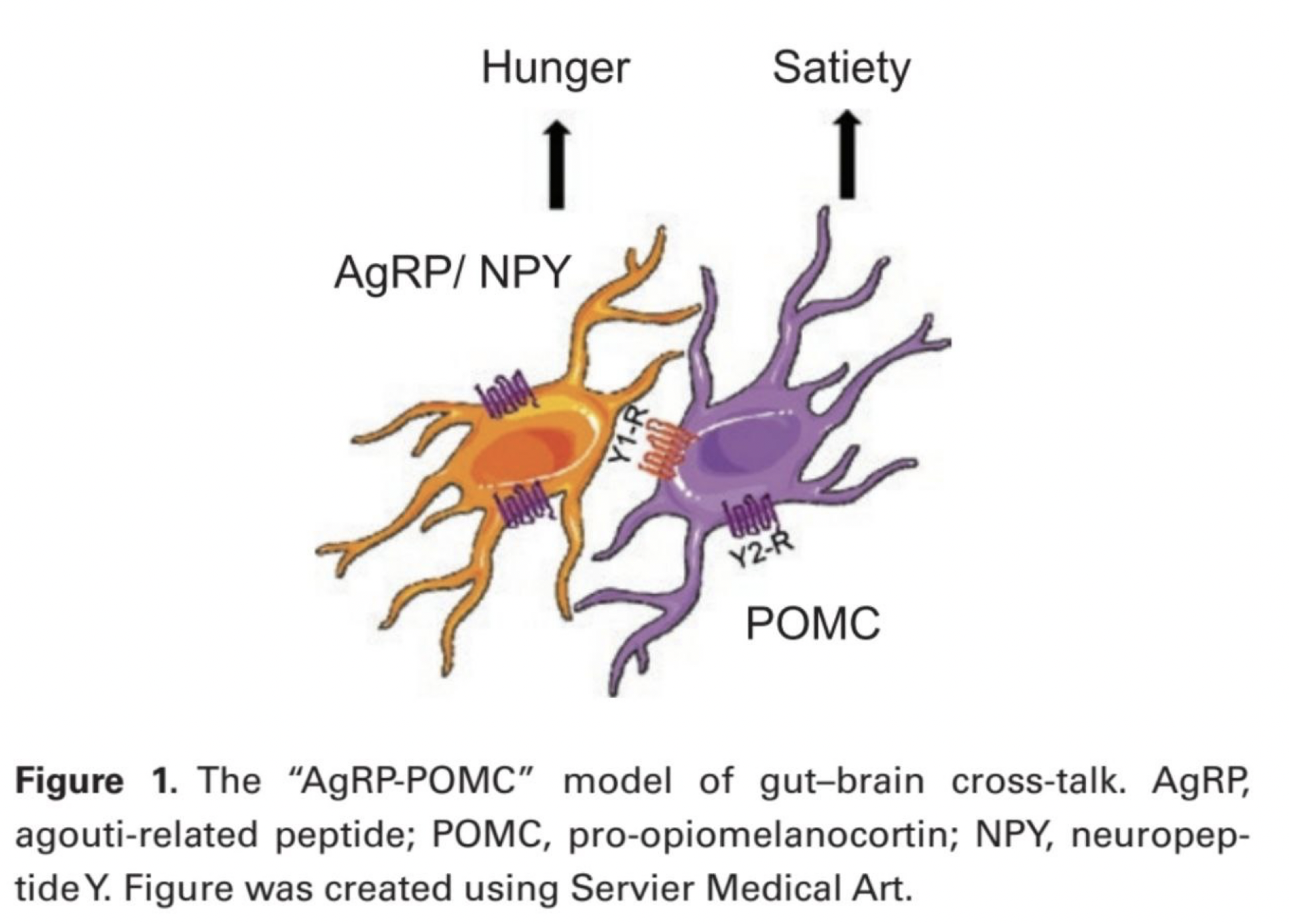
-
Q. Do patients change food preference after bariatric surgery ?
- yes
- they prefer less energy dense and sweet food
- infact this occurs ealy on after surgery
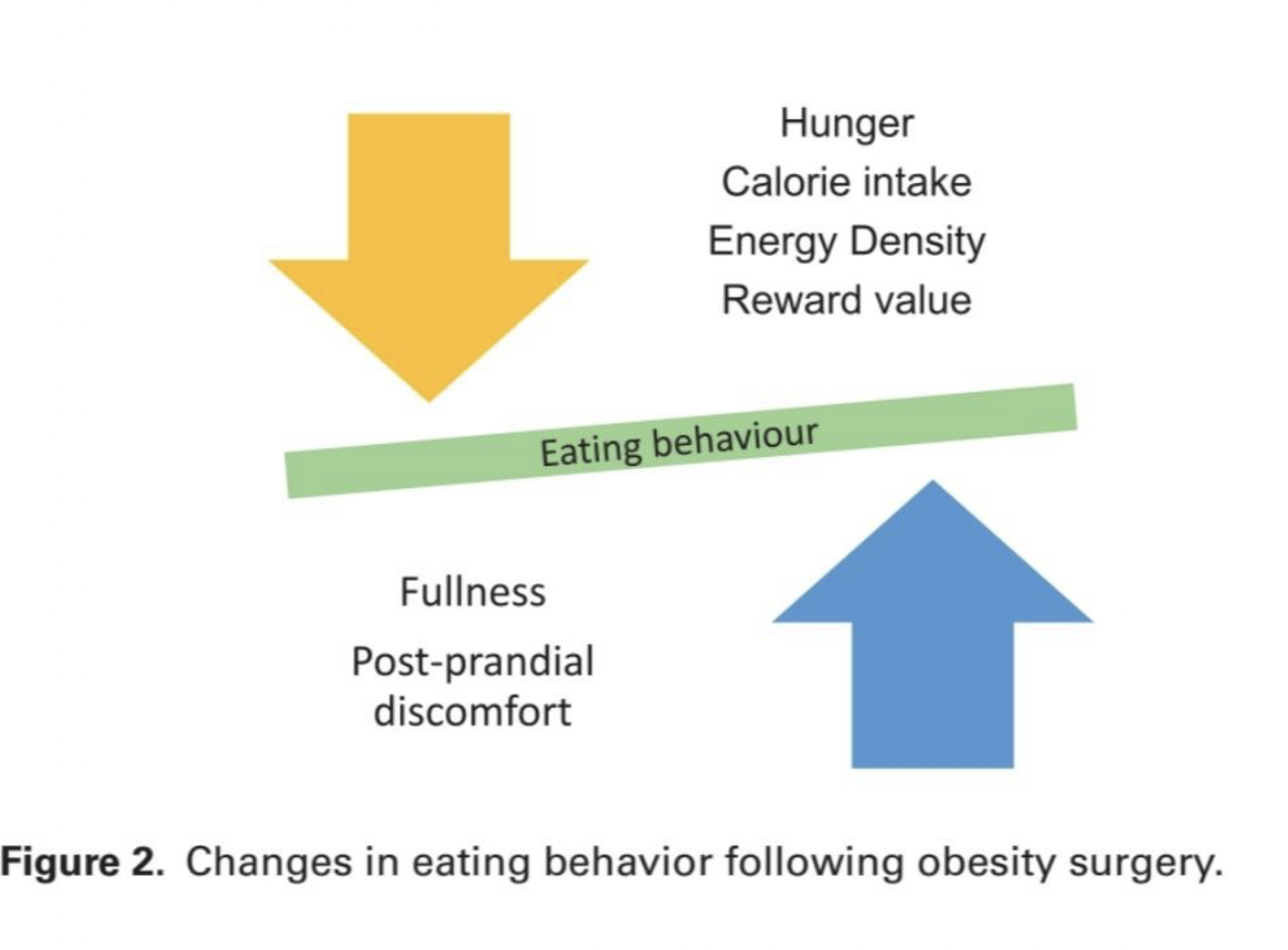
-
Pearls:
- Functional neuroimaging studies have shown that the rewarding aspects of food is reduced after bariatric surgery especially RYGB
- The rate of salivation depends on the taste of food
- Orofacial response in animal models is good indicator of whether they find food tasty or not
- There is changes in taste after bariatric surgery
- In initially few weeks after surgery there is craving for increased sugar and fat but this goes away
- Probably becauser the reward aspect of the food goes away
- Dumping syndrome also contributes to this food selection
- increased glycemic load of food increases dumping syndrome
- This is lost following bariatric surgery
- Taste changes occurs with RYGB and Sleeve gastrectomy but not with adjustable gastric banding
- Brown adipose tissue and rest energy expenditure changes are not certain following surgery
-
Q. Which are the two most important gut hormones involved in the bariatric surgery ?
- GLP-1
- PYY
- Both are secreated by the L cells of the pancreas
- Both are elevated post-prandially after surgery
- Fasting concentration do not change
- both are anorexiogenic hormones which act centrally by crossing the blood brain barrier
- RYGB the food reaches jejunum and ileum directly - there the L cells are most abandunt and they are stimulated leading to the release of these hormones
- However, mice models have shown that though these mechanisms are helpful- they do not work in isolation
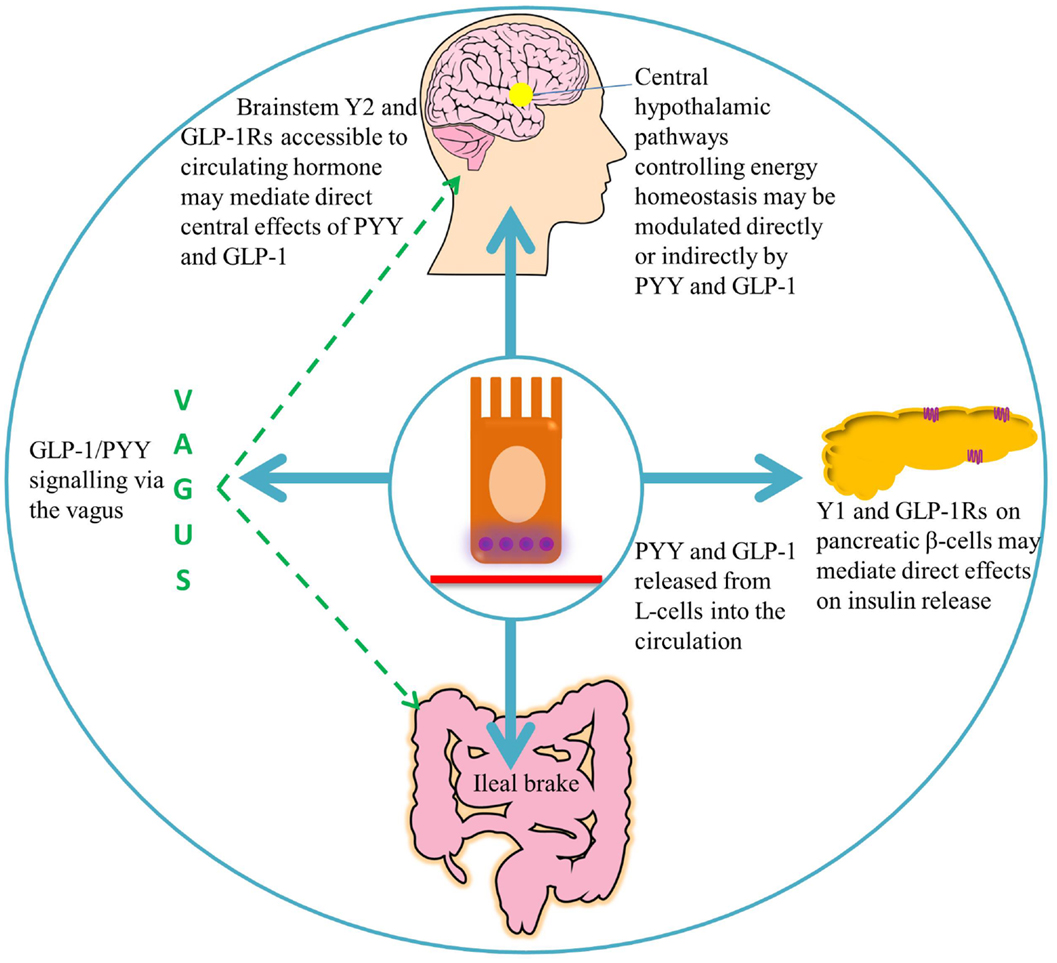

-
Q. Does Sleeve gastrectomy also have an impact on the L cells ?
- yes
- Sleeve gastrectomy produces rapid gastric emptying
- Because of this more amount of nutrients get dumped into the jejunum and ileum more rapidly
- However, the release of the hormones is less compared to RYGB
-
Q. Which two new hormones are now considered to be playing an important role
- Oxyntomodulin
- Glicentin
- Exact mechanism is not not
- It is the most stable of the proglucagon peptides hence may prove to be a good biomarker for L cells function in future
- Both are released by the L cells
- Levels of both are increased post surgery
-
Q. Give us a breakdown of the Proglucagon peptides
-
Q. What happens to Ghrelin ?
- Little changes after RYGB
- Reduces after Sleeve gastrectomy
-
Q. Are bile acid levels increased after obesity surgery ?
- Yes
-
Q. What is the impact of bile acid on weight loss ?
-
Q. Are bile acids increased following weight loss following lifestyle measures?
-
Q. What is the role of FXR in weight loss ?
- FXR induces browing of adipose tissue
- Bile acid stimulate FXR
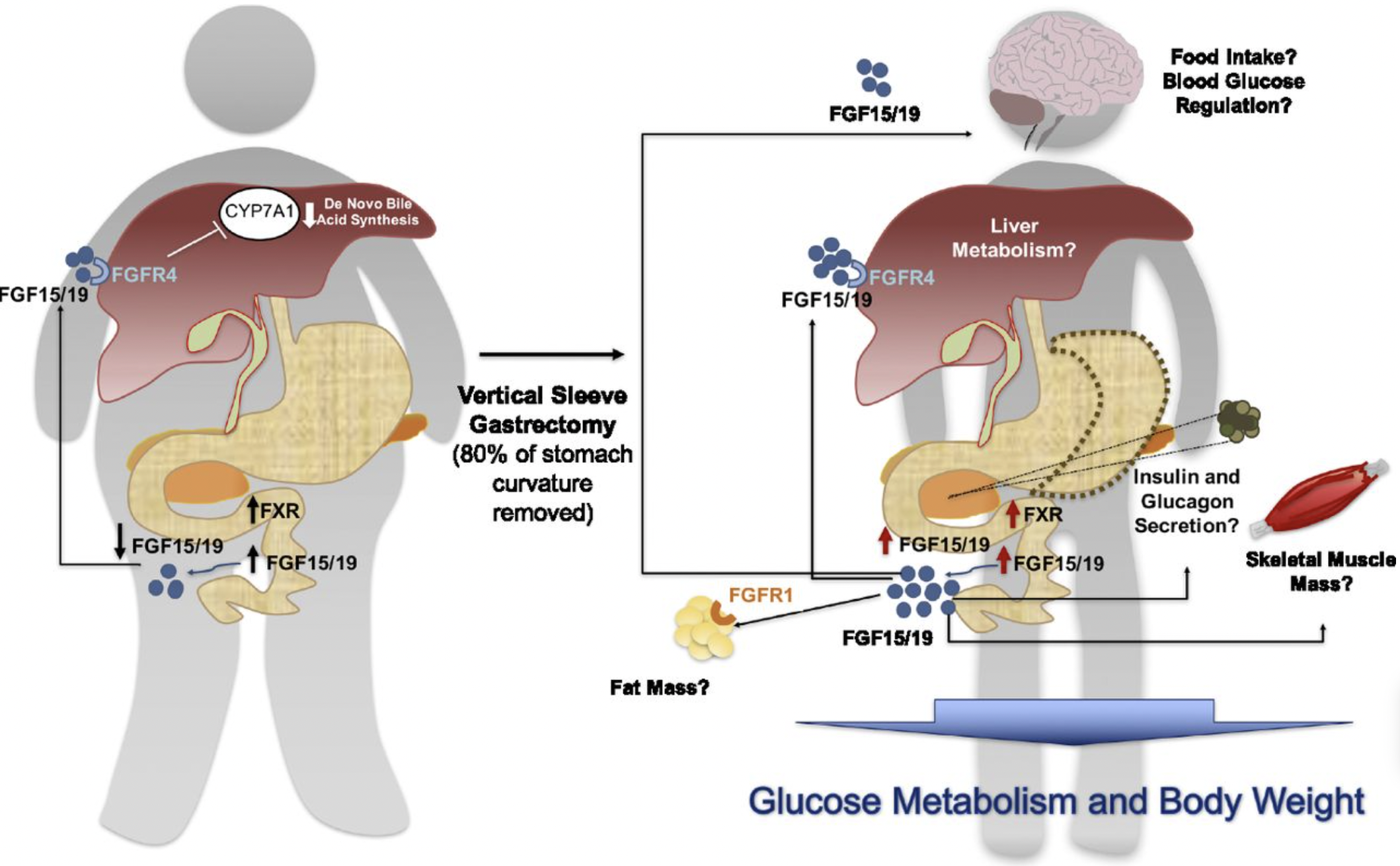
-
Q. What are the two types of FGR which increase following obesity surgery ?
-
Q. Which genetic cause of obesity responds well to bariatric surgery ?
- MC4R mutation
-
Q. Which 2 gut microbes are strongly associated with obesity ?
- Firmicutes
- Bacteroidetes
-
Q. How soon after bariatirc surgery is the gut microbes changes ?
- As soon as three months after the surgery
-
Q. How do certain gut microbes produce weight loss ?
- Gut microbes --> Short chain fatty acid --> Stimulate GLP-1 receptors
-
Q. Summarize the Mechanisms of Weight loss after Obesity surgery ? [1]
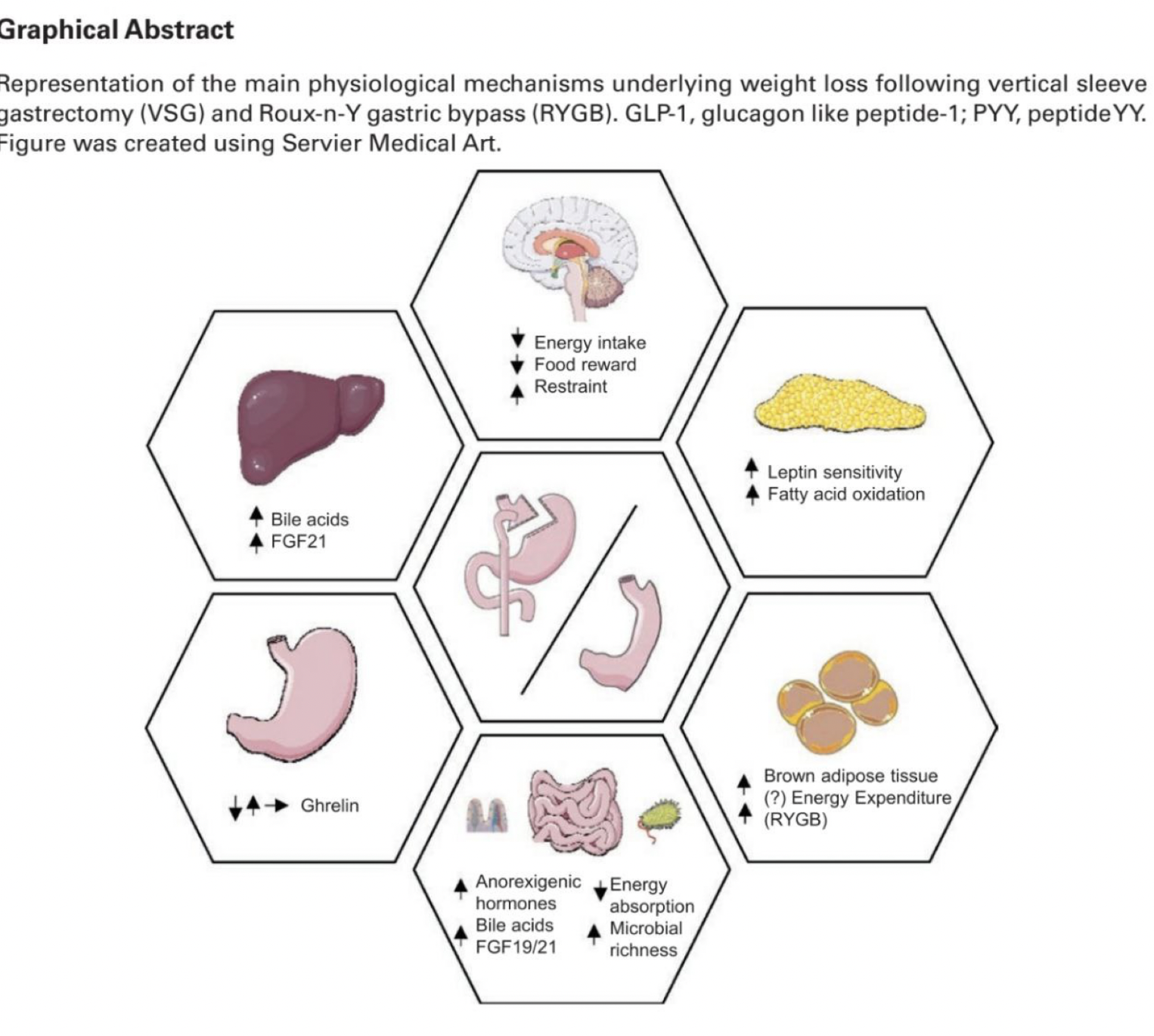
-
- Mechanical effect
-
- Neurohormonal changes
- A) Change in taste after bariatric surgery
- Less craving for sugary and fatty food
- Possible contributed by Dumping syndrome
-
- Gut hormonal changes
- A) Changes in GLP-1 and PYY
- RYGB the food reaches jejunum and ileum directly - there the L cells are most abandunt and they are stimulated leading to the release of these hormones
- Rapid gastric emptying in Sleeve gastrectomy also produces same effect
- B) role of Oxatomodulin and Glicentin
- C) Reduction of Ghrelin after RYBG
-
- Role of bile acid
Akalestou E, Miras AD, Rutter GA, le Roux CW. Mechanisms of weight loss after obesity surgery. Endocrine Reveiws. 2021 Aug 7. ↩︎

